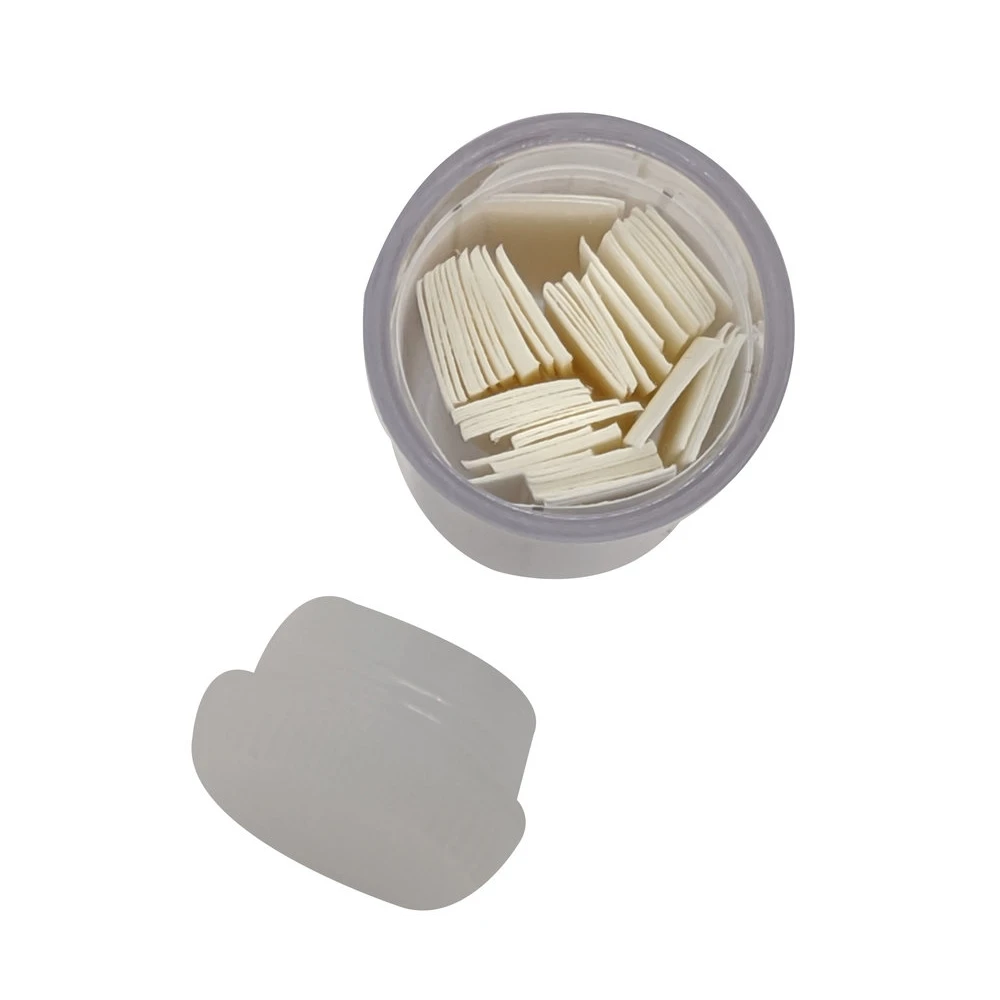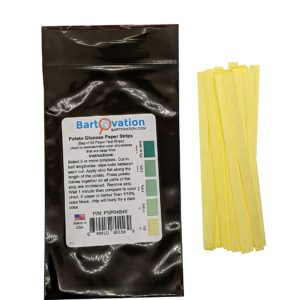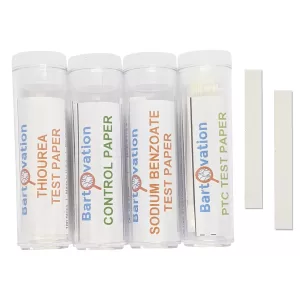Description
This listing is for various different kinds of supertaster test strips. Each is packaged bottles of 100 pre-cut paper strips and they are sold individually here.
If you would like to buy a complete supertaster set with an accompanying lab we would recommend ordering this instead.
The bottles you can buy here include:
Pheylthiocarbamide also known as phenylthiourea (PTC) – tasters taste bitterness
Sodium Benzoate – tasters taste sweet, salty, or even bitterness depending on the individual
Thiourea – tasters taste bitterness
N-Propylthiouracil – tasters taste bitterness
Control – These strips are used with coated test strips for genetic testing (such as Phenylthiourea (PTC), Sodium Benzoate, Thiourea, and N-Propylthiouracil) to establish a baseline and control for placebo. This adds validity to the experiment.
Learn more about genotypes, phenotypes, and genetic pedigrees. If you are looking to use this item for a research project or scientific study click here to learn more about our capabilities for custom packaging to help make your study as easy as possible to conduct! You can also read this journal article about a course-based undergraduate research experiences where the lab design utilizes our PTC and Control test paper strips in its design. It explores the relationship between infectious disease susceptibility and taste status (non-taster, taster, supertaster) and its potential public policy implications.
Frequently Asked Questions (FAQ)
Can I taste PTC or not?
Whether you can taste PTC (phenylthiocarbamide) or not depends on your genetic makeup. PTC is a bitter compound, and some people can taste it intensely, while others cannot taste it at all. This difference is due to the presence of specific genes that code for taste receptors on your tongue. If you can taste PTC, you are considered a “PTC taster”; if you cannot, you are a “non-taster.” The only way to know for sure if an individual can taste PTC is by using a test strip like this one.
Is being a PTC taster dominant or recessive?
The ability to taste PTC is controlled by a single dominant gene. The gene responsible for this is called TAS2R38. If you inherit at least one copy of the dominant allele (from either parent), you will be able to taste PTC.
What does PTC taste like?
For those who can taste it, PTC has a very bitter flavor. The intensity of the bitterness can vary from person to person. For some, it’s almost unbearable, while for others, it may be a mild bitterness. The taste of PTC is often described as “sharp,” “metallic,” or “astringent.”
Interestingly, non-tasters don’t experience the bitterness of PTC at all and may even describe it as tasteless or neutral. This difference in perception of taste may have implications in dietary choices, as people who are sensitive to bitter compounds like PTC might be more likely to avoid certain bitter vegetables (e.g., broccoli, kale) or foods.
Only logged in customers who have purchased this product may leave a review.





Reviews
There are no reviews yet.